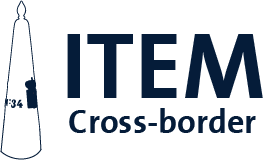Your task: Assessing the impact of a current legislative/policy proposal on border regions
ITEM’s main task is to help remove border barriers within the EU. That is why we publish a detailed annual report – our cross-border impact assessment report – on what we regard as the current issues from legislation and policy that could create such barriers. These include, for example, negative or positive effects of new legislation that arises for people living in one country but working in another, or barriers inhibiting local authorities working together on cross-border projects.
By identifying and analyzing potential cross-border effects, ITEM aims to contribute to both the scientific debate and improve (policy on) cross-border mobility and the socio-economic development of cross-border regions in practice.
We are also working closely together with the Dutch government to improve their internal impact assessment routine.
The PREMIUM student team will get a clear assignment with respect to very current matter: the revised Schengen Borders Code and the instalments of internal border controls by Member States. The task will be to apply the ITEM impact assessment methodology and contribute to the 2025 cross-border impact assessment report that will be published and communicate to ITEM’s stakeholders and the wider public.
Are you looking for a research project that has impact on policies for border regions, such as where the UM is situated? This is something for you!

